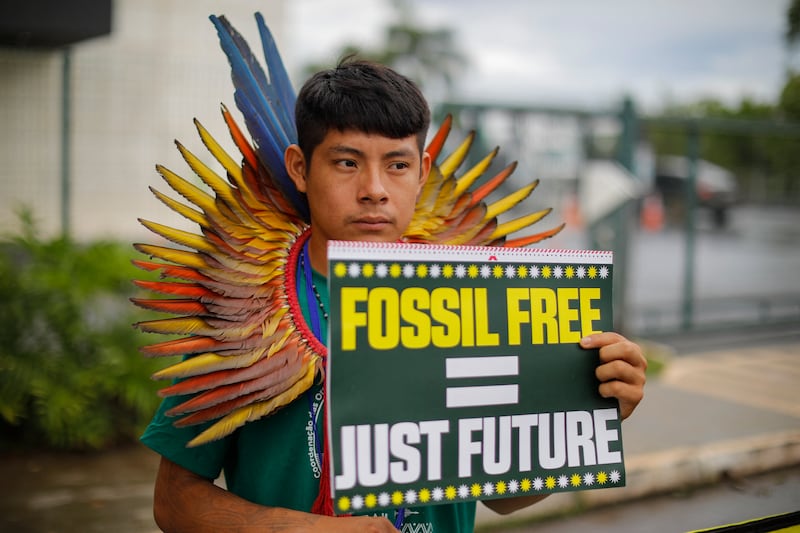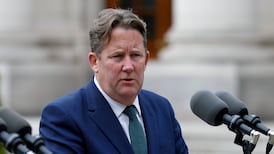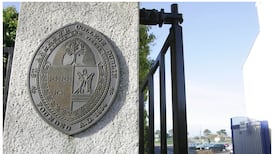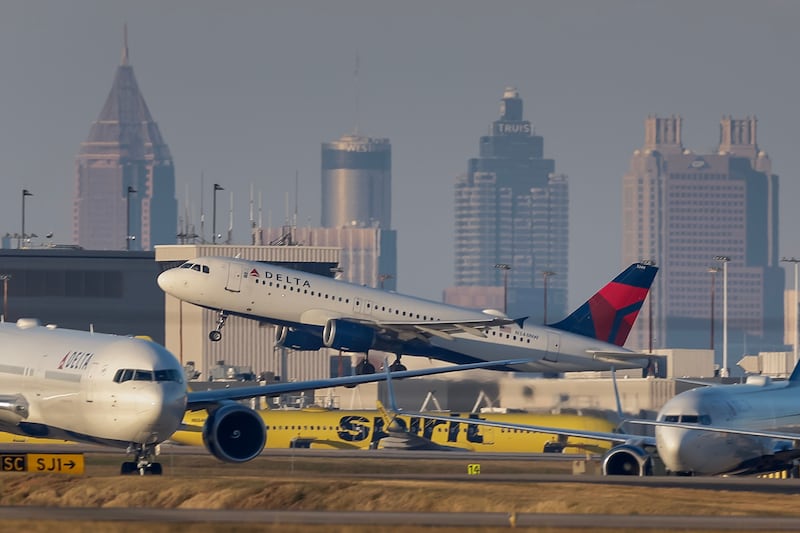History occasionally produces a turning point year when an old order ends and a new one begins to emerge.
Such years include 1789 with the French Revolution marking the shift from monarchy and feudalism to popular sovereignty and modern democracy; 1914 and the start of the first World War which catalysed the collapse of four empires, Austro-Hungarian, German, Ottoman and Russian; 1945, when the US led in establishing a global governance system which has lasted 80 years (the Pax Americana); and 1989, when the fall of the Berlin Wall and subsequent political changes resulted in the collapse of the Soviet Union in 1991.
Each of these examples involved mainly political change. What may make 2025 truly historic is that the political changes in the post-1945 governance order are likely to be combined with the wide-ranging, but still uncertain, economic and global sustainability implications of artificial intelligence (AI).
Ireland’s domestic and foreign policy will have to adjust to these changes. Global Ireland 2040, a review of Ireland’s future foreign policy options due in early 2026, could indicate the direction of these changes.
READ MORE
Priorities need to be agreed for three key aspects of policy: how will Ireland position itself to achieve maximum influence in the emerging new governance order; what can Ireland contribute to humanity’s two existential challenges by 2050 of sustainably nourishing close to 10 billion people while keeping global warming increases to 1.5 degrees above pre-industrial levels – or as close to this as possible.
And how can Ireland, along with the EU and the international community, partner with Africa in its political and economic transformation.
Two key elements of Ireland’s political and economic performance in the post-second World War era have been its United Nations (UN) and European Union (EU) membership, respectively from 1955 and 1973 onwards.
These will remain critical aspects of Ireland’s identity and potential into the future.
Emerging world order
The emerging order, and how it differs from the post-1945 order, is taking shape.
[ Why Africa is central to the climate change conundrumOpens in new window ]

The US and China are the two political and economic superpowers. But we are entering a multipolar world in which other large countries - India, Brazil - and regional players are becoming more important, politically and economically. The Global South is increasingly asserting its collective voice in world affairs.
President Trump’s “America First” policy has had wide ranging consequences. The US has opted out of multilateral efforts to tackle global challenges such as climate change and child undernutrition and its aid cuts, including the closure of USAid had a significant negative impact in many poorer developing countries.
Aid cutbacks have occurred in most OECD countries, faced with budgetary pressures and increased defence spending. Ireland is an honourable exception in that it remains committed to working towards the 0.7 per cent aid target and it increased funding for aid by €30 million in Budget 2026.
While the geopolitical map is changing, the multilateral system must deal with global challenges by doing more with less, develop innovative forms of development finance and build new partnerships with the private sector and civil society. Developing countries, particularly in Africa, must learn to live with the reality of reduced aid, raise increased resources from their domestic economies and take more responsibility for their own development.
Ireland will wish to sustain its good relations with the US, China and the wider multilateral system. There is scope for Ireland to be a coalition builder in emerging multilateral efforts to deal with global challenges, based on its track record in humanitarian and development work over decades and its most recent decisions to maintain aid levels when other counties are reducing theirs.

From a political perspective, Ireland should remember an analogy from the 1960s – the UN Decade of Decolonisation. Ireland was a strong supporter of this initiative, applying as it did mainly in Africa. This support was given in line with deep Irish values. It was also good politics and likely was remembered during the four successful Irish campaigns in recent decades to become a member of the UN Security Council.
With the Global South likely to become increasingly important in coming decades, Ireland should consider how it can build its relations and support for their aspirations. Political symbols are important and are remembered.
The postwar consensus was that tariffs should be progressively reduced in a move towards increasingly freer trade. President Trump’s decisions on tariffs and trade on “Liberation Day” - April 2nd - has smashed that consensus.
EU Commission president Ursula von der Leyen’s 2025 State of the Union Message was to diversify its trading relationships and deepen its partnerships elsewhere to reduce dependence on any single partner.
This should have been the moment when the Government levelled with the public, Opposition parties and various lobby groups to assert that the Mercosur trade agreement was a good deal for the EU and for Ireland and should be ratified. It is correct to seek that the interests of beef farmers are protected in the event of market disturbance but there are solid arrangements in place to ensure that.

Twin 2050 challenges
Meeting the twin challenges of sustainably feeding close to 10 billion people and slowing global warming by 2050 is a major task. Ireland on its own cannot make a meaningful impact but it can have a significant influence through partnerships and advocating for intelligent policies.
Irish foreign policy should adopt a set of interlocking priorities – food and nutrition security, health and human capital, climate justice and action – which should inform its international positioning. A strong emphasis on gender equality should be a cross-cutting thread running through these priorities.
These priorities reflect Ireland’s own development experience and its economic transformation over the past 50 years and its successful overseas development programme, particularly in Africa. Ireland has credibility and a track record in these areas.
Ireland’s record in influencing international policy is good. During 2025, Ireland played an important role at the Nutrition for Growth (N4G) Summit in Paris last March. It committed €1 billion towards global nutrition for the 2027-2030 period, making it the highest per capita donor at the summit. Ireland also played a significant role at the UN Food Systems Summit Stocktaking meeting in Addis Ababa in July.
The threats posed by warming of 1.5 degrees for people, place, ecosystems and food production are increasingly apparent. Next week’s UN Cop meeting is being held in Brazil for the first time since the annual climate summit started in 1995, which has as a principal focus the link between climate and food, as well as widening efforts to reach the 1.5 degree target.
Ireland will be represented by Taoiseach Micheál Martin; Ministers Darragh O’Brien, Timmy Dooley and Neale Richmond. They will aim to build on Irish leadership in recent Cops in increasing climate finance. They will support the Global Alliance against Hunger and Poverty; the signature initiative of the Brazilian Cop presidency.
[ Ireland should reimagine its relationship with AfricaOpens in new window ]
Africa’s critical importance
Africa’s increasing political and economic importance in global affairs is obvious. Demography lies at the heart of this change. Between 2025 and 2050, world population is projected to increase from 8.2 billion to 9.7 billion, an increase of 1.5 billion. Africa is projected to account for 1.2 billion of this, 80 per cent of the increased population.
Europe, Ireland and the wider world have a major self-interest in partnering with Africa to achieve its development. But the continent faces major challenges. It is significantly affected by national and regional conflicts which result in hunger and political instability. Its human resource potential is impacted by high levels of stunting among African children. Its political leaders will need to perform at a different level than has been evident in recent decades.
After the second World War, the US launched its Marshall Plan to enable Europe to rebuild. The initiative was based on vision, generosity and self-interest. Those same principles need to be brought to bear towards Africa over coming decades.
A new post-2025 multilateralism, with Europe, China and Brazil likely having key roles, could be a possible vehicle to progress this.
Ireland should aim to be a vital player in this new multilaterism, through imagining its potential and delivering on its opportunities.
Tom Arnold is chair of Ireland Africa Rural Development Committee
















